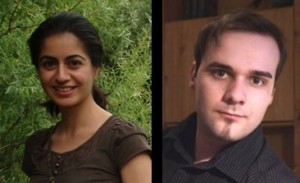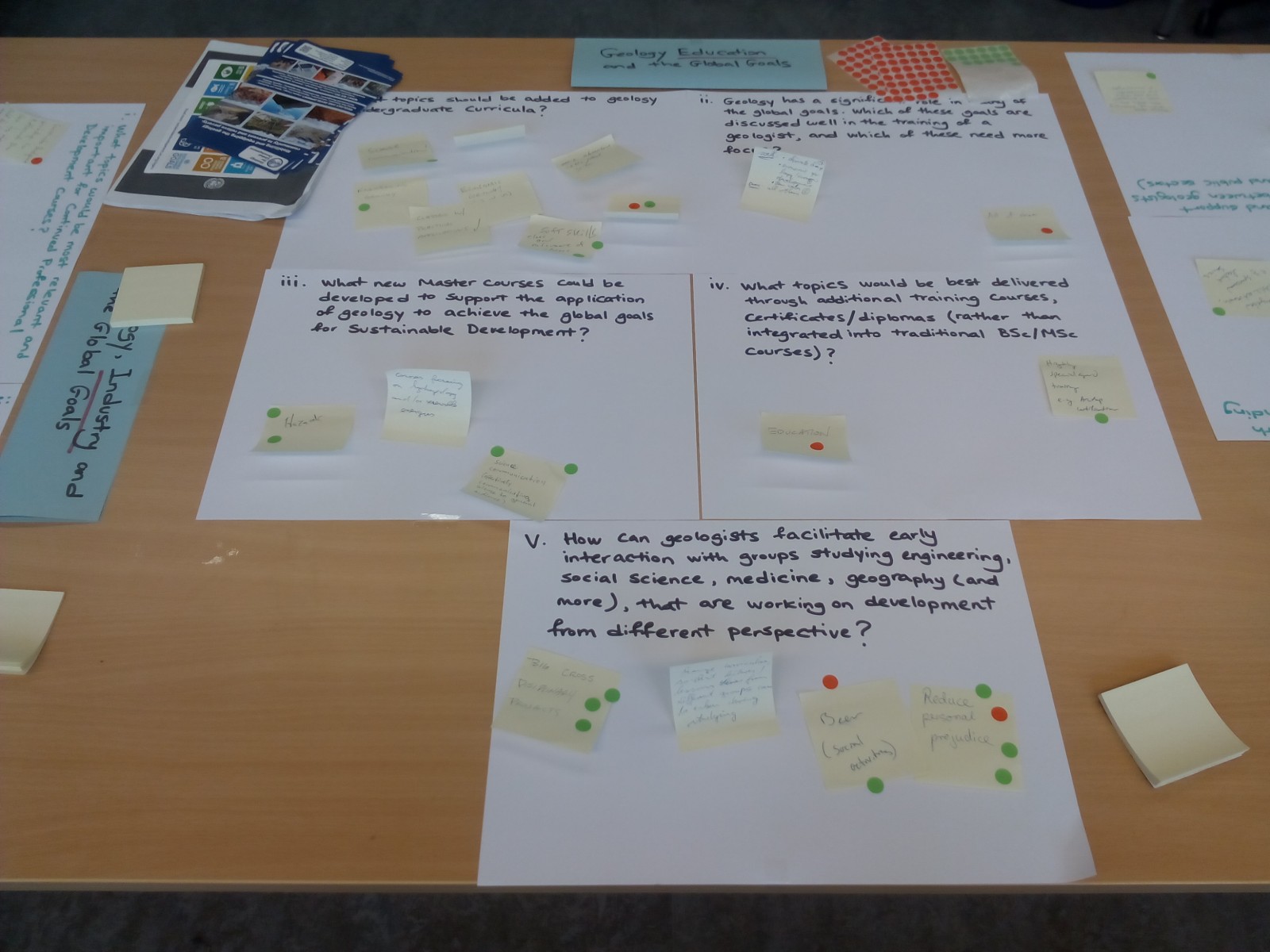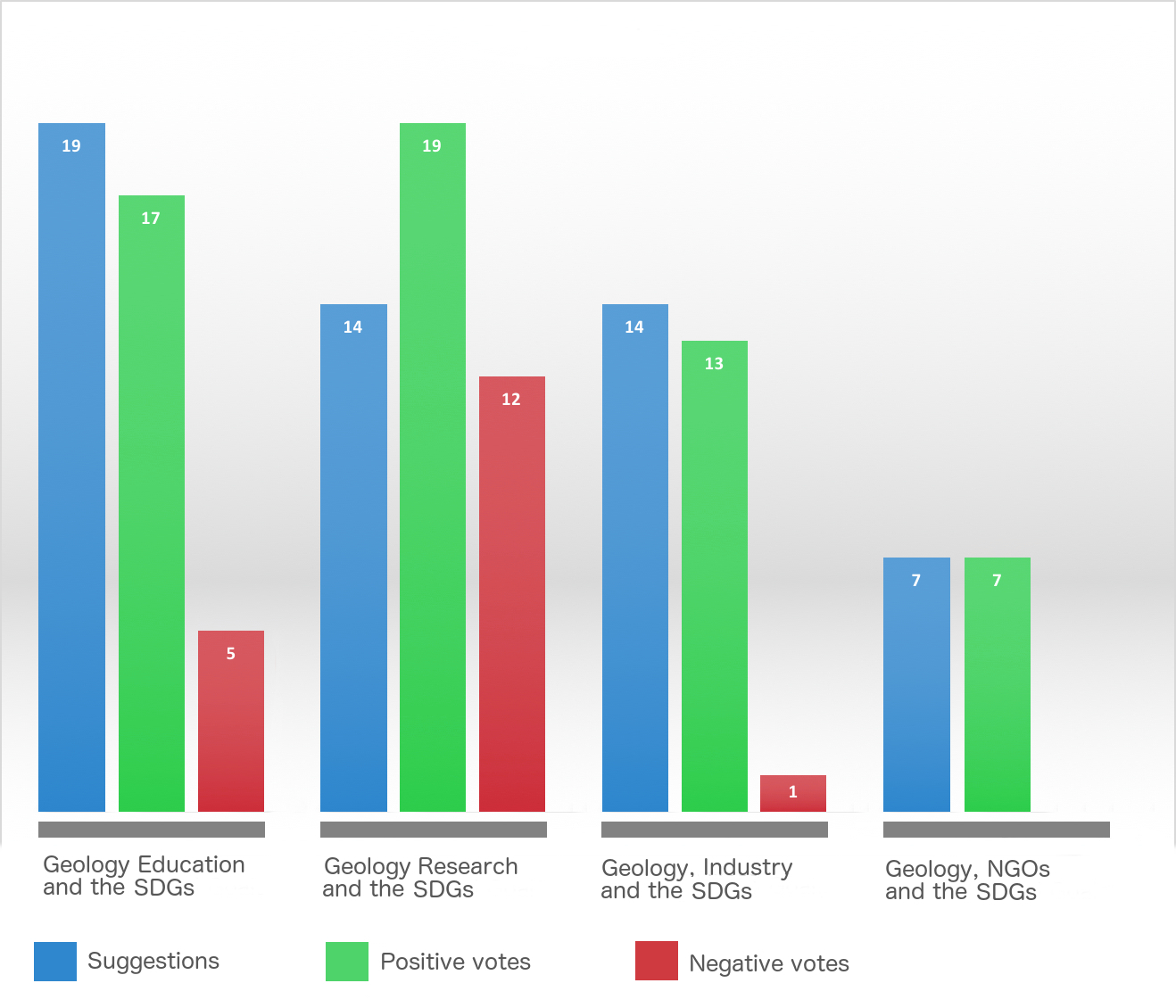 Solmaz Mohadjer and Sebastian Mutz, University of Tübingen researchers, recently designed and facilitated a seminar on the topic of Geology and the Sustainable Development Goals. Below, they share some results from their pilot implementation at the University of Tübingen, Germany.
Solmaz Mohadjer and Sebastian Mutz, University of Tübingen researchers, recently designed and facilitated a seminar on the topic of Geology and the Sustainable Development Goals. Below, they share some results from their pilot implementation at the University of Tübingen, Germany.
There is an African proverb that says “if you want to go fast, go alone. If you want to go far, go together.” The road set by the Sustainable Development Goals (SDGs) for the next 15 years is long and riddled with potholes. To travel far, everyone needs to join in and do their part. This includes the geosciences community. In October 2015, 130+ from the geosciences community gathered at the Geological Society of London to educate themselves about the SDGs and explore the role of the geosciences community in achieving them. At the conference, I spoke about the role of geohazards research and practice in addressing key sustainable development issues such as disaster risk reduction. The conference emphasized other sustainable development issues that are at the heart of many geoscience disciplines (e.g., sustainable agriculture, water and sanitation, and climate change). Once back in Tübingen, Sebastian Mutz and I created a plan for doing our part as geologists in addressing the SDGs. To hop on the road to the SDGs, we decided to go small and stay local. We designed and taught two sessions on the SDGs with the target audience being our own colleagues.
The curriculum can be downloaded and used for free:
Session 1: Curriculum instruction (PDF) and accompanying presentation (PDF)
Session 2: Curriculum instruction (PDF) and accompanying presentation (PDF)
These sessions are designed to give a brief introduction to the SDGs and the role of geosciences in achieving them. The curriculum is both lecture- and activity-based and can be easily adapted to suit participants from different backgrounds. The curriculum also provides participants with an opportunity to present their current/previous work in the context of the SDGs. The curriculum completion takes about 2 hours per session.
Below we describe an activity that was conducted as part of the second session. We then briefly state the key observations and our interpretation of them.
Inspired by a discussion session that was conducted as part of the 3rd Annual Conference of Geology for Global Development, we facilitated an interactive group activity in the second session during which participants were encouraged to think about how the SDGs should shape geosciences education, research, industry practice and engagement with civil society. Participants were given a series of questions related to the aforementioned categories and were asked to brainstorm and write down their responses on Post-it notes under each question. Participants were then asked to read and discuss all responses and indicate their level of agreement with each response. Red round stickers placed next to a response indicated their disagreement while green stickers showed their agreement (Figure 1).

Figure 1. Participants’ responses on Post-it notes to questions and their level of agreement with each response using round stickers (red: disagree, green: agree).
The three key observations from this activity (as demonstrated in Figure 2) as well as our interpretation are:
- High level of participation shows that the participants believed the SDGs can and should shape geoscience education, research, industry practice and engagement with civil society. Participants who are all members of the geoscience community were able to generate suggestions as to how this can/should be done in each category. The large number of ideas generated during this activity highlights the potential and confirms the important role of geoscientists in achieving the SDGs.
- While participants were able to generate suggestions to questions listed in all categories, their level of engagement (as reflected by the number of suggestions) across all categories is uneven. This could reflect the background of this specific group of participants consisting of geoscience students and researchers with varying degrees of involvement with industry practice. Therefore, more suggestions pertaining to questions related to these fields (i.e., education, research, and industry practice) were generated. The total number of votes (both negative and positive) in these fields is also higher. This possibly indicates a higher level of confidence in participants’ opinions related to these fields which could be due to this same background. The few suggestions under the civil society category might highlight participants’ limited (or lack of) engagement with civil society (e.g., NGOs). Organizations such as Geology for Global Development are currently working to address this issue by equipping geoscientists with skills and knowledge needed for meaningful engagement in the development field.
- Participants seem to have opposing opinions as to how the SDGs should shape geoscience research. This is reflected by the high number of positive and negative votes received in this category. Within this category, participants agree on suggestions pertaining to the following questions: (1) how to better connect researchers with those working in development, (2) how to ensure research outputs are more accessible; and (3) how to facilitate more effective research partnerships globally. Popular suggestions often related to sharing technologies and improving science communication (e.g., open-source software, journals and online knowledge-sharing platforms) and making research partnerships with local institutions mandatory by funding agencies. However, all suggestions related to the researchers’ role in enhancing scientific research in developing countries received negative votes. These suggestions included: funding bi-lateral programs, creating positions that are related to specific developing countries (for example: the work of Institut de recherche pour le développment), and donating old (but still usable) equipment to local universities and research partners.
Taken all together, participants seem to recognize the importance of forming effective global research partnerships as a means of implementation for all the SDGs, and that innovative solutions for enhancing scientific research in developing countries should look beyond providing traditional technical assistance and support.

Figure 2. Participants’ participation per discussion topic. Blue indicates the number of ideas generated per category, red indicates the number of negative votes received in each category; green indicates the number of positive votes received in each category. The numbers shown at the top of each column correspond with the number of ideas/votes per category. SDGs: Sustainable Development Goals.
The key point we hoped to convey during the seminar was to encourage our colleagues to think more broadly about their research findings and their role as researchers in solving global issues. “The seminar activities helped me realize why I should care about the SDGs and the applicability of my research to real world problems,” commented Dr. Karim Norouzi. The seminar was considered to be a great experience by Dr. Karl Lang. “[This is] something we should be doing regularly, but seminars like this help to stretch our thinking and consider new perspectives,” said Dr. Lang on the importance of thinking critically about the underlying motivations for scientific research. For others like Jessica Starke, the seminar was a good starting point for learning about the SDGs. “I recommend that the seminar be repeated for other students and members of the scientific community so that they are familiar with these important goals.”
